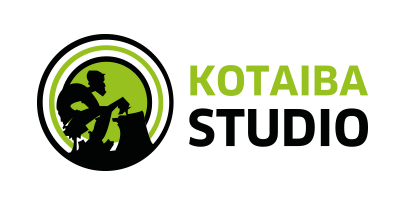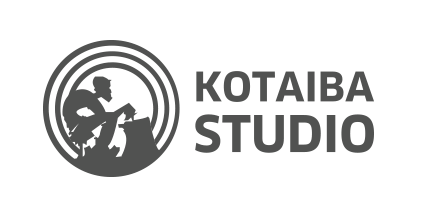Designing Doha’s Future: Kotaiba Studio’s Creative Logo Concept for Doha Design City
Introduction: Doha Design City Competition
Designing for a City of Creativity: Kotaiba Studio’s Logo Proposal for Doha Design City
In Doha, where innovation and tradition often meet at the crossroads of culture, design has become more than an industry — it is a movement. Doha Design City is one of the initiatives fueling this momentum, positioning the capital as a hub for creativity in the Middle East. When the platform launched its logo design competition, Kotaiba Studio stepped forward with a proposal that celebrated the city’s identity while envisioning its creative future.
For the studio, the competition was more than an opportunity to submit a mark. It was a chance to ask deeper questions about place-making, culture, and design: What should the visual identity of a “Design City” look like in Doha? How can a logo embody the essence of both heritage and modernity?
A Competition that Calls for Vision
Logo design competitions often serve as laboratories for ideas — spaces where creative studios can push boundaries, experiment, and present visions that go beyond the immediate brief. The Doha Design City competition was no exception. It wasn’t only about designing a logo; it was about creating a visual identity capable of representing Doha as a design capital on the world stage.
Kotaiba Studio’s entry embraced this challenge with bold imagination. Drawing inspiration from the cultural fabric of Qatar, the proposal was built on the belief that branding should work not just as a symbol, but as a story.
The Creative Brief: Designing a Logo for Doha
Blending Heritage with Modernity
The concept leaned into Doha’s duality: a city of rich traditions and rapid innovation. The logo design was shaped by motifs rooted in Qatari heritage — subtle echoes of calligraphy, geometric structures reminiscent of Islamic art, and forms inspired by architectural details across Doha.
But heritage alone wasn’t enough. To reflect the forward-looking energy of the city, Kotaiba Studio introduced a modern design language: clean lines, flexible shapes, and a bold composition that could adapt across digital and physical platforms. The result was a visual identity system that felt authentic to Qatar yet aligned with global design standards.
Color choices carried their own symbolism. Warm tones referenced the desert landscapes and cultural richness of Qatar, while cooler accents reflected Doha’s modern architecture and the aspirational spirit of its design community. This palette ensured the logo would not just be seen, but felt — a reflection of both place and possibility.
Branding as Storytelling
For Kotaiba Studio, branding is never just about visual aesthetics. It is about crafting a narrative that people can connect to. The Doha Design City proposal was designed to tell a story of connection: between Doha’s past and its future, between local traditions and global aspirations, between design as craft and design as culture.
This approach meant treating the logo as the foundation of an identity system rather than a static mark. The proposal included considerations for how the brand could extend into wayfinding, digital campaigns, cultural events, and architectural signage. The goal was simple: to ensure the identity could live, breathe, and grow alongside the city itself.
Design Inspiration: Blending Qatari Heritage with Modern Identity
The Spirit of Participation
While competitions are measured in outcomes, for Kotaiba Studio the experience was equally valuable for the process it demanded. Submitting to Doha Design City was an exercise in sharpening creative philosophy: design as identity, storytelling as branding, and culture as inspiration.
The project challenged the studio to condense big ideas into a symbol that could resonate across audiences. It required balance — between simplicity and depth, functionality and emotion. In doing so, it reinforced the studio’s belief that design has the power to frame how we see places, cultures, and ourselves.
Doha as a Creative Capital
Qatar has been steadily investing in cultural and creative infrastructure, with Doha at the forefront. From iconic museums and world-class architecture to platforms like Doha Design City, the city is positioning itself as a global hub for design.
The competition aligned with this vision. By inviting designers and studios to imagine a logo for Doha Design City, it wasn’t just asking for a mark — it was sparking dialogue about what creativity means in Qatar and how branding can represent that identity on an international stage.
Kotaiba Studio’s proposal tapped into this context, aligning with Doha’s role as a design hub. The submission echoed the city’s ambition: to be both rooted in culture and open to global exchange.
Concept Development: From Sketch to Symbol
A Lasting Impression
Competitions may come and go, but their impact often lasts. For Kotaiba Studio, contributing to Doha Design City was not just about a single entry — it was about reaffirming a commitment to design as cultural storytelling. The project became a reflection of the studio’s ethos: to create branding that resonates deeply, adapts flexibly, and inspires collectively.
Even without focusing on outcomes, the proposal remains a proud milestone in the studio’s portfolio — one that highlights both creative risk-taking and respect for context. It stands as proof of how design can engage with place and purpose, even within the brief of a competition.
Conclusion
The Doha Design City logo competition was more than a call for entries — it was a call for vision. Kotaiba Studio responded with a concept that blended Qatari heritage with modern design language, transforming a mark into a narrative system.
Through this project, the studio not only contributed to Doha’s growing creative dialogue but also reaffirmed its own design philosophy: that branding is never just about form — it’s about meaning.
As Doha continues its journey as a cultural capital, initiatives like Doha Design City will play a key role in shaping its global identity. And studios like Kotaiba, with their commitment to creative storytelling, will remain part of the conversation.
Reflection: Creativity as Cultural Storytelling
Let’s Collaborate
If you're looking for a custom Arabic logo that captures cultural richness and professionalism, let’s create something meaningful together.
Contact me → Here

